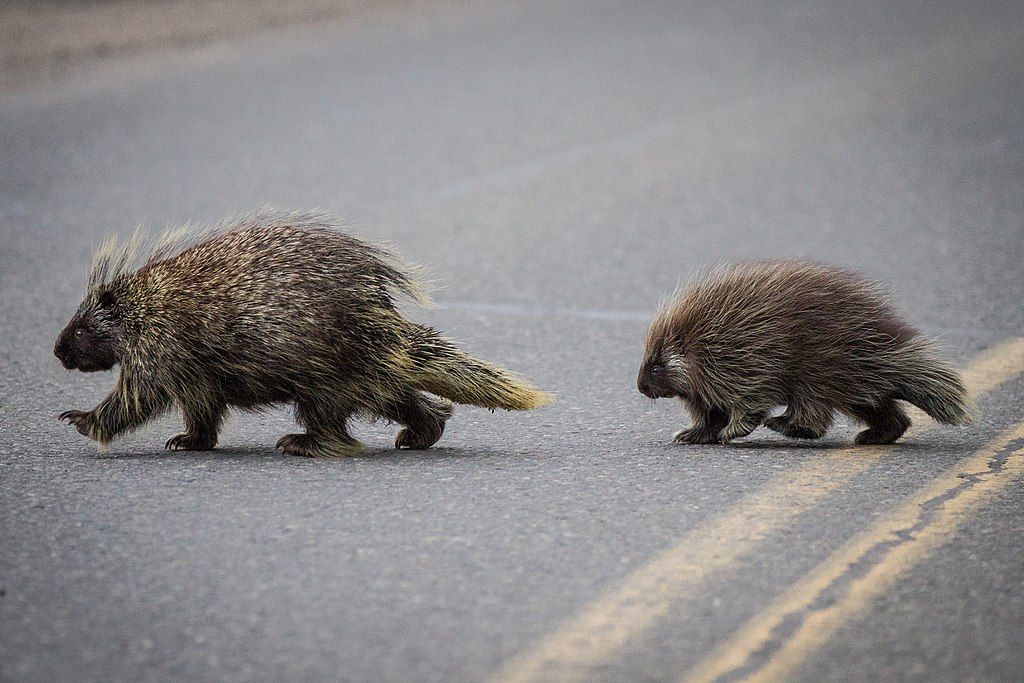PROTECT YOUR DNA WITH QUANTUM TECHNOLOGY
Orgo-Life the new way to the future Advertising by Adpathway Horse nettle blooming, Herrs Island back channel, 25 July 2025 (photo by Kate St. John)
Horse nettle blooming, Herrs Island back channel, 25 July 2025 (photo by Kate St. John)29 July 2025
One of my favorite places to walk is along the Allegheny River on the Three Rivers Heritage Trail at Herrs Island back channel. The stretch from the Millvale Boat Launch to Herrs Island Scenic Overlook is rich in birds, plants and insects. Last Friday I found a novel (new) mix of native and non-native species in bloom.
Horse nettle, typically Solanum carolinense, is not a nettle at all but a member of the Solanum genus that includes potatoes, tomatoes and eggplants. This native, shown at top, is called “nettle” because the stems, leaves and flower stalks have thorns. Horse nettle is a perennial that spreads by seeds and rhizomes (creeping rootstalks). I did not realize that it has these interesting characteristics. I’ll have to go back and check them out.
Leaves smell like potatoes when crushed. … The fruits are berries that resemble tomatoes. The immature fruit is dark green with light green stripes, turning yellow and wrinkled as it matures. Each fruit contains around 60 seeds.
— Wikipedia: Solanum carolinenseAllegheny or square-stemmed monkeyflower (Mimulus ringens) is also a perennial that spreads by rhizomes and is often included in native plant seed mixes. Chances are it’s one of the few survivors of a trail beautification project. All it needed was the perfect place to sprout.
 Allegheny monkeyflower, Herrs Island back channel, 25 July 2025 (photo by Kate St. John)
Allegheny monkeyflower, Herrs Island back channel, 25 July 2025 (photo by Kate St. John)Teasel (Dipsacus fullonum) is native to Eurasia and Africa but was brought to North America for use in textile processing. The dried flower head is “a natural comb for cleaning, aligning and raising the nap on fabrics, particularly wool.” It is so hardy that it escaped into the wild.
In the photo another native of Eurasia and Africa, the honeybee, finds a familiar flower and inadvertently helps it spread.
 Honeybee visits teasel, Herrs Island back channel, 25 July 2025 (photo by Kate St. John)
Honeybee visits teasel, Herrs Island back channel, 25 July 2025 (photo by Kate St. John)I found catnip (Nepeta cataria) blooming along the trail. What a great plant! We think it’s just for cats but people brought it here from Eurasia because of its many uses.
- Catnip attracts butterflies (and cats).
- It is drought tolerant and deer resistant.
- Its presence can be a repellent for aphids and squash bugs.
- Iridodial, extracted from catnip oil, attracts lacewings that eat aphids and mites.
- If you rub catnip leaves on your skin or clothes the iridoid in them will repel mosquitos. You will also attract cats.
 Catnip blooming, Herrs Island back channel, 25 July 2025 (photo by Kate St. John)
Catnip blooming, Herrs Island back channel, 25 July 2025 (photo by Kate St. John)I’m always happy to see common St. John’s wort (Hypericum perforatum) because it shares my name. This hardy non-native perennial was brought here from Eurasia and Africa for its many medicinal uses.
 St. Johns wort, Herrs Island back channel, 25 July 2025 (photo by Kate St. John)
St. Johns wort, Herrs Island back channel, 25 July 2025 (photo by Kate St. John)Wild Urban Plants of the Northeast by Peter Del Tredici explains that it was “traditionally used as a poultice for treating wounds and ulcers. More recently it has become popular for treating mild depression along with the accompanying symptoms of fatigue, anxiety and insomnia. It has also been used as a food preservative, especially for cheese, and as a source of reddish dye.”
Years ago I bought a box containing my own good mood.

A novel ecosystem: Rather than thinking of this habitat as invasive weeds, I am learning to view it through Del Tredici’s eyes. This mix of native and non-native plants would never have come together were it not for humans. The result is a blend of hardy plants in a thriving novel ecosystem that has the staying power to outlast what we do to the habitat.
Bill Sutherland describes it here:
video embedded from Bill Sutherland’s Conservation Concepts on YouTube























 English (US) ·
English (US) ·  French (CA) ·
French (CA) ·